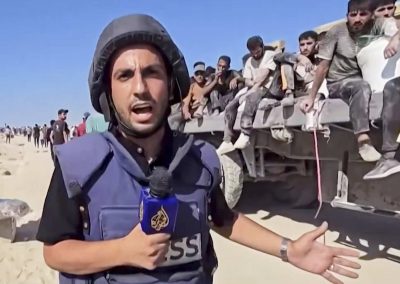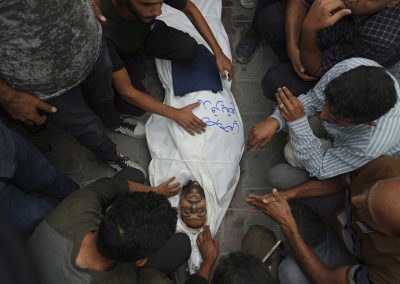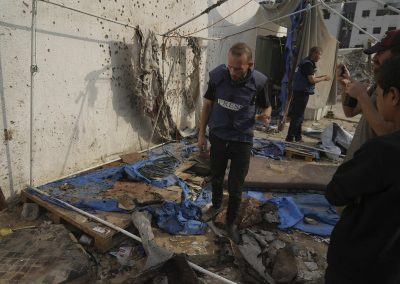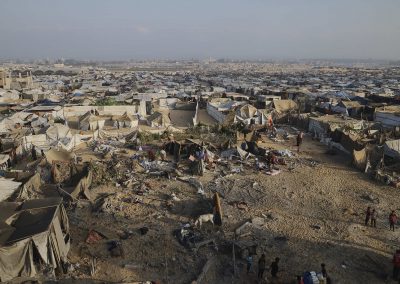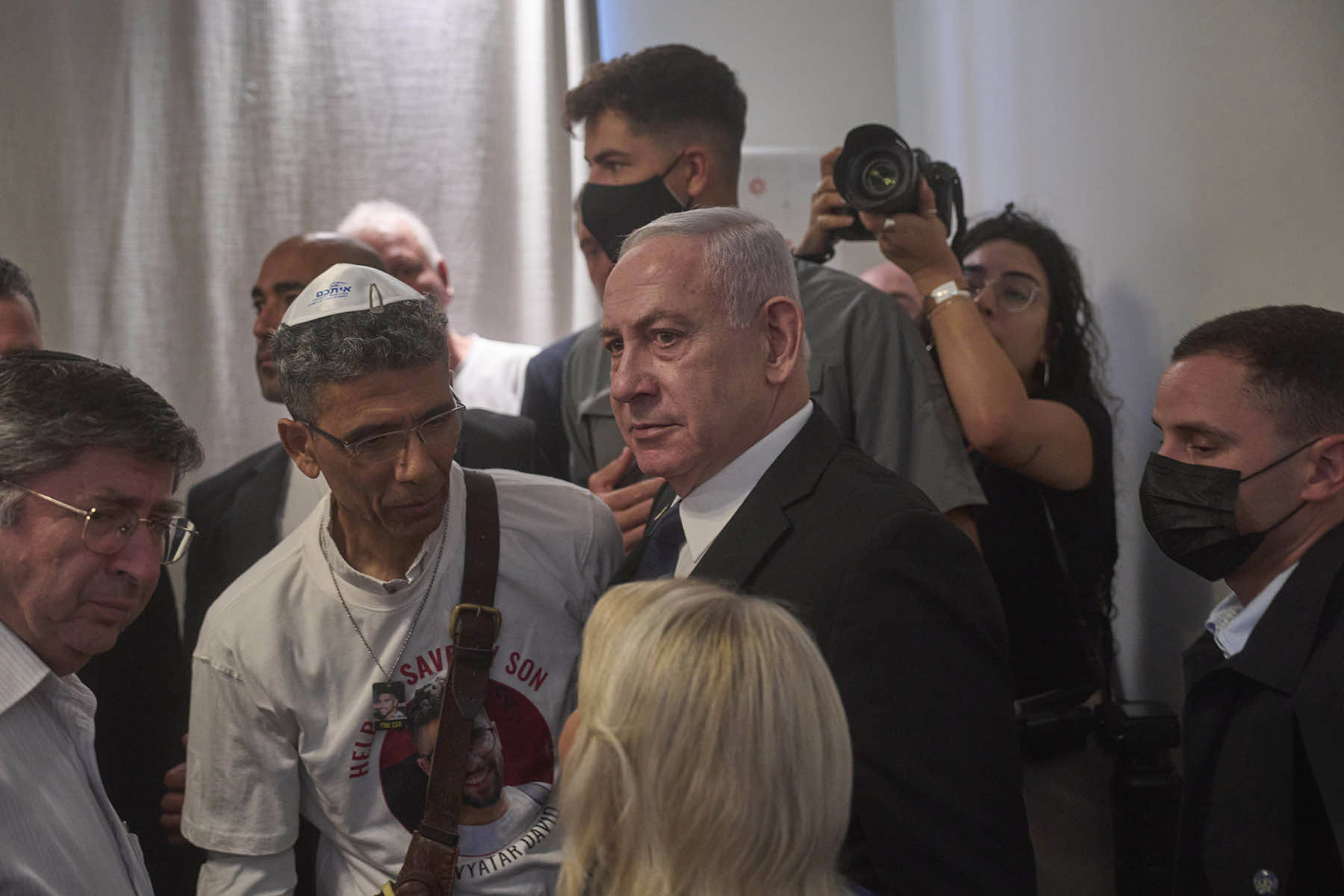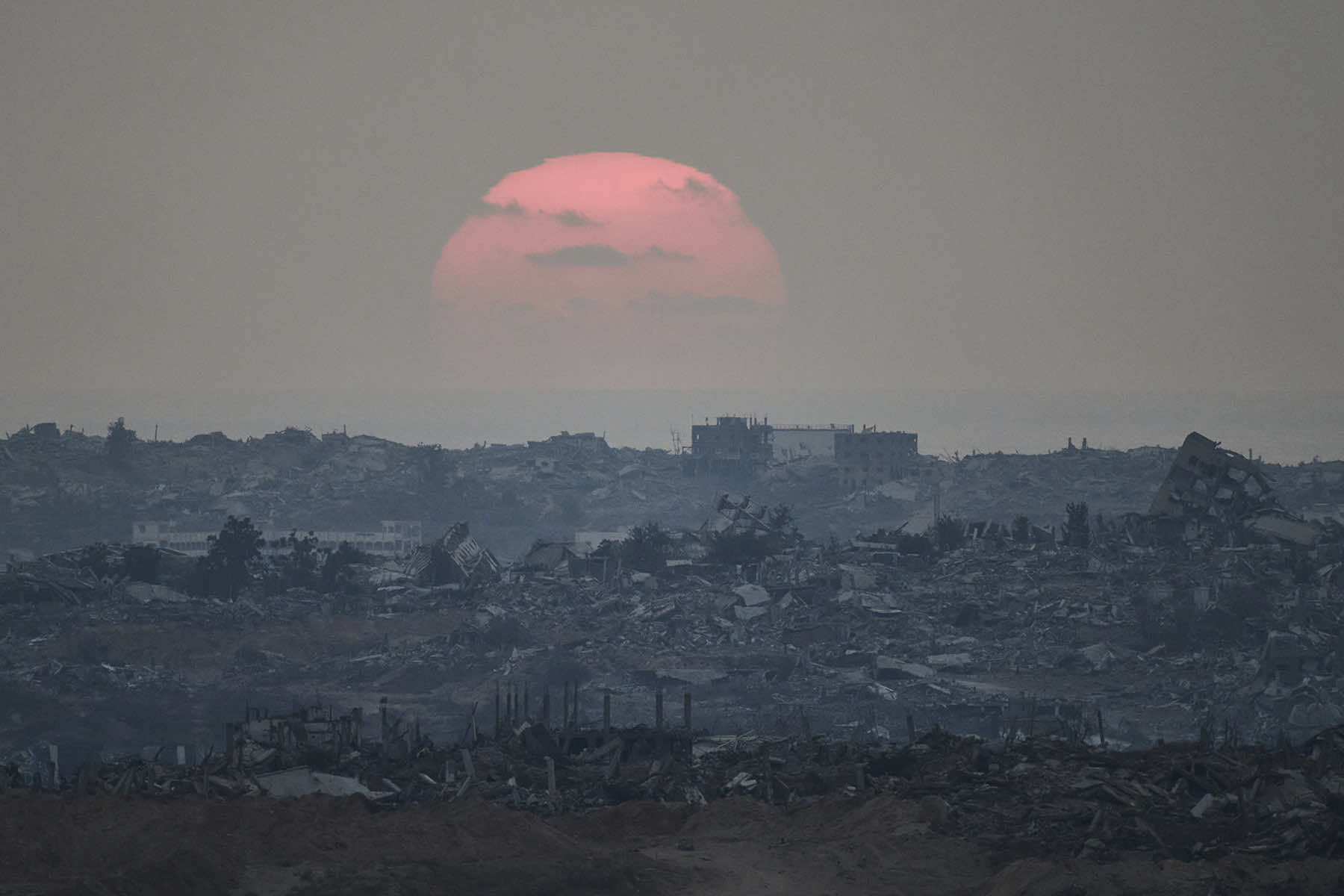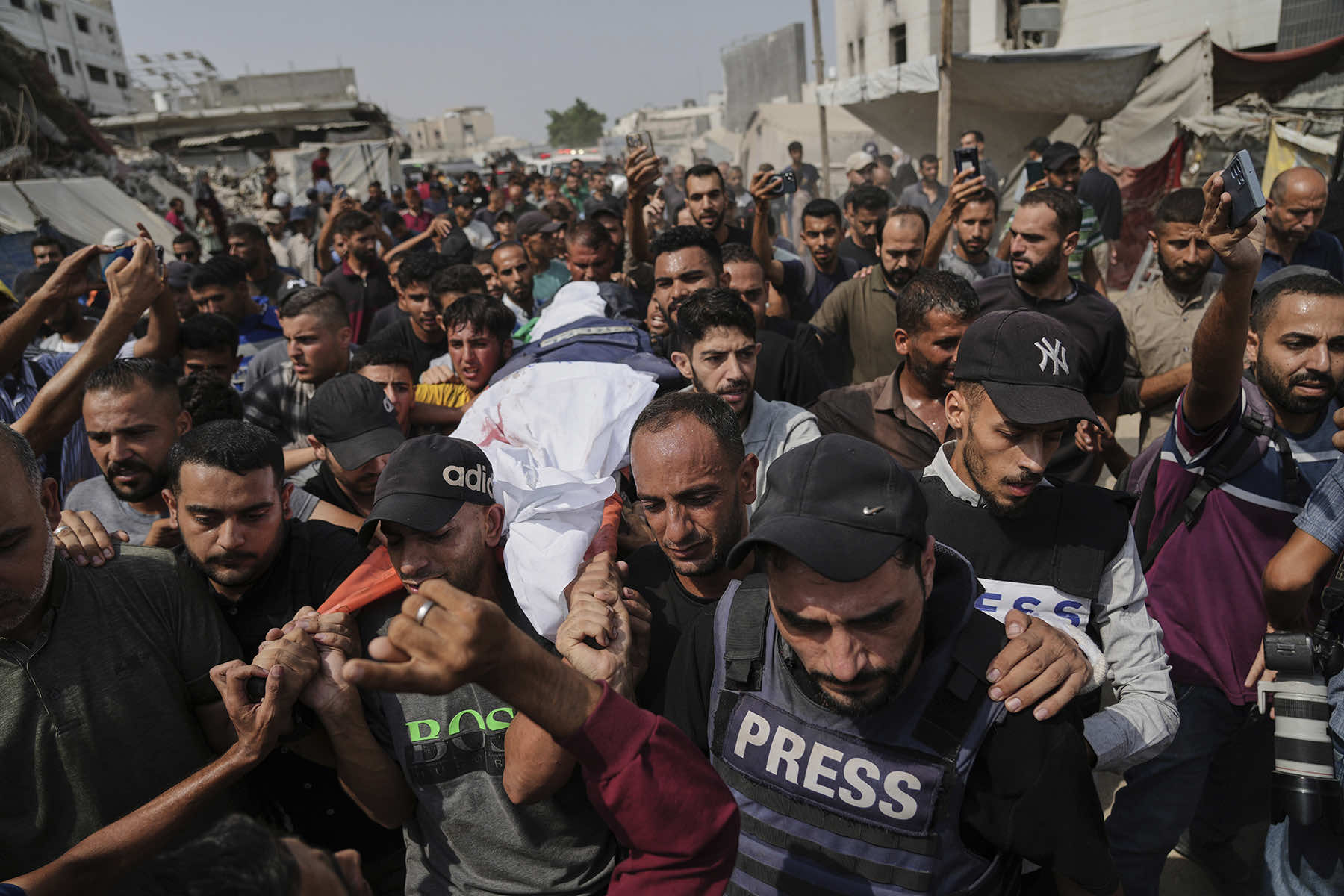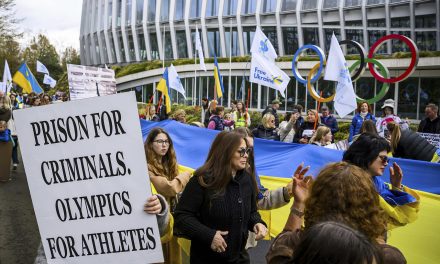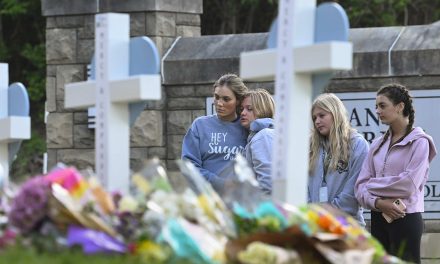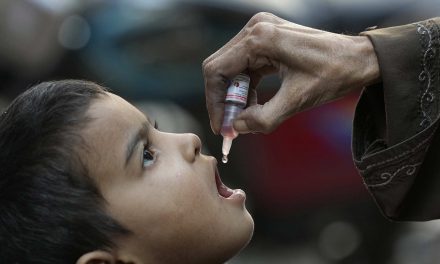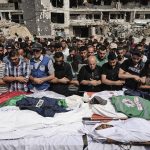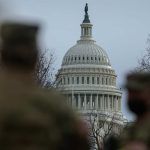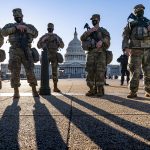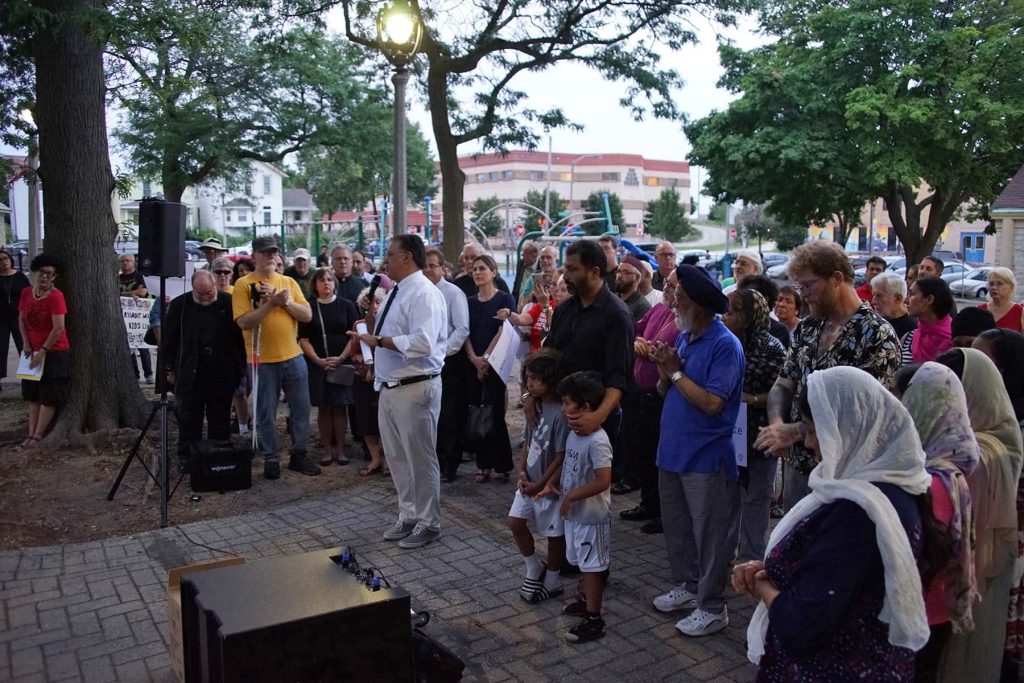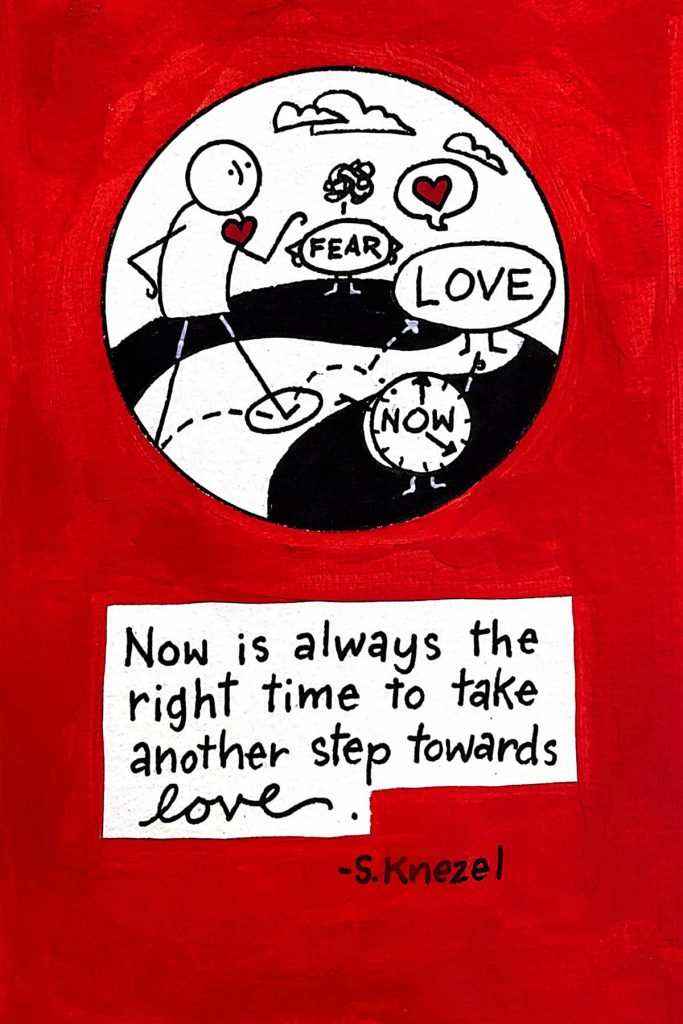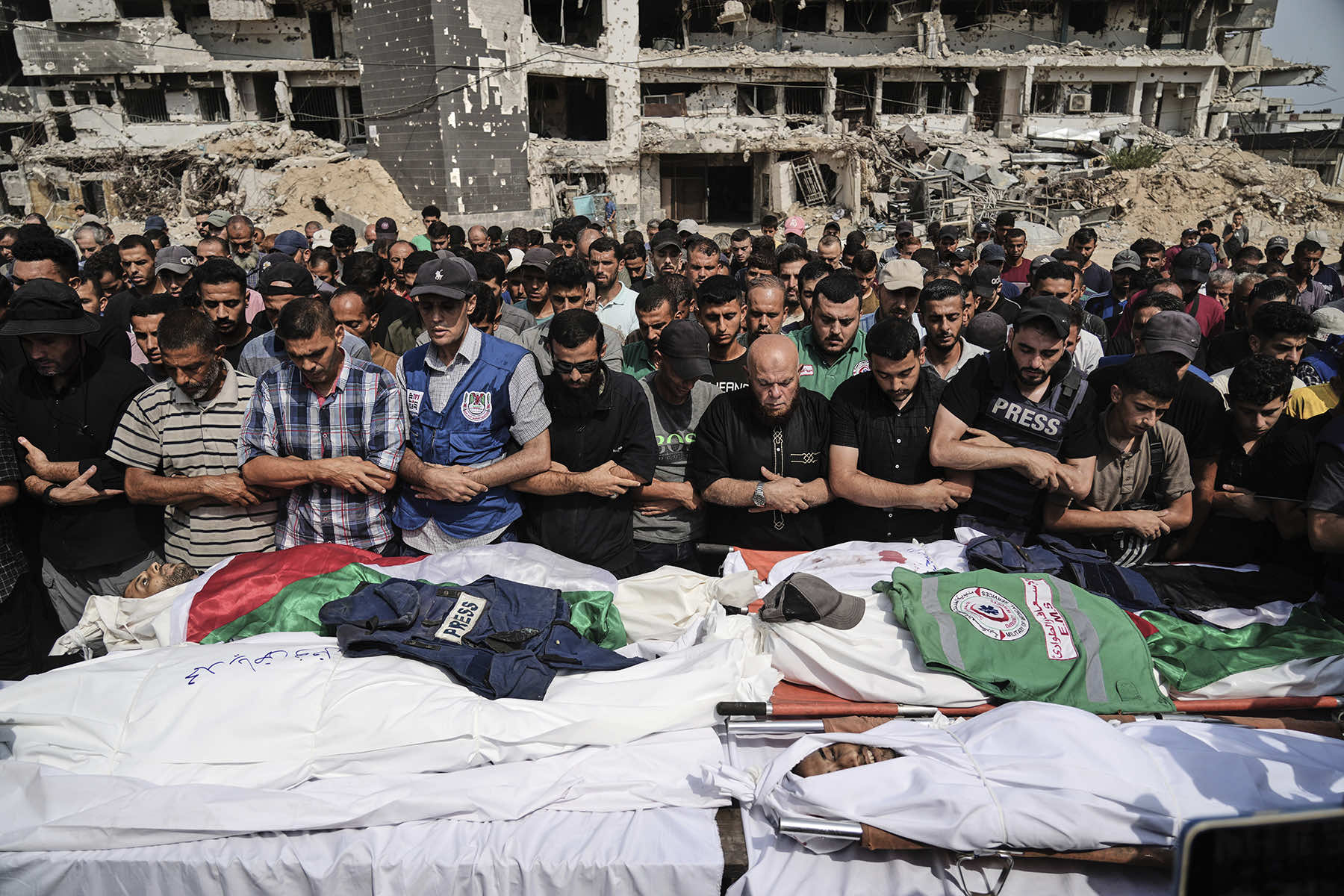
Israel’s military targeted and killed an “Al Jazeera” correspondent and others with an airstrike on August 10 in Gaza, after press advocates said an Israeli “smear campaign” stepped up when Anas al-Sharif cried on air over starvation in the territory.
Both Israel and hospital officials in Gaza City confirmed the deaths of al-Sharif and colleagues, which the Committee to Protect Journalists and others described as retribution against those documenting the war in Gaza. Israel’s military falsely asserted that al-Sharif had led a Hamas cell, an allegation that “Al Jazeera” and al-Sharif previously dismissed as baseless.
The military has previously said it targeted individuals it described as Hamas militants posing as reporters. Observers have called this the deadliest conflict for journalists in modern times.
Officials at Shifa Hospital said those killed while sheltering outside Gaza City’s largest hospital complex also included “Al Jazeera” correspondent Mohamed Qreiqeh, plus four other journalists and two other people. Five of the six slain journalists were “Al Jazeera” staffers. The strike damaged the entrance to the complex’s emergency building.
The airstrike occurred hours after Israeli Prime Minister Benjamin Netanyahu defended a planned military offensive into some of Gaza’s most populated areas, including Gaza City, and said he directed the military to “bring in more foreign journalists” to Gaza.
AL JAZEERA CALLS STRIKE AN “ASSASSINATION”
Condemnation has poured in from the U.N. human rights office, the Foreign Press Association, the Committee to Protect Journalists, the International Press Institute, and Amnesty International, among others.
“Al Jazeera” called the strike a “targeted assassination” and accused Israeli officials of incitement, connecting al-Sharif’s death to the allegations that both the network and correspondent had denied.
“Anas and his colleagues were among the last remaining voices from within Gaza, providing the world with unfiltered, on-the-ground coverage of the devastating realities endured by its people,” the Qatari network said in a statement.
Aside from rare guided tours, Israel has barred international media from covering the 22-month war in Gaza. News organizations instead rely largely on Palestinian Gaza residents and ingenuity to show the world what is happening there.
Israel often questions the affiliations and biases of Palestinian journalists but doesn’t permit others in. “Al Jazeera” is among the few outlets still fielding a big team of reporters inside the besieged strip, chronicling daily life amid airstrikes, hunger, and the rubble of destroyed neighborhoods.
“Al Jazeera” is blocked in Israel, and soldiers raided its offices in the occupied West Bank last year. Israel at the time ordered the closure of its local offices, while preventing the broadcast of its reports and blocking its websites.
The network has suffered heavy losses during the war, including 27-year-old correspondent Ismail al-Ghoul and cameraman Rami al-Rifi, killed last summer, and freelancer Hossam Shabat, killed in an Israeli airstrike in March.
Like al-Sharif, Shabat was among the six that Israel accused of being members of militant groups last October.
“Only a journalist that is a Hamas fighter or that is, at the time of attack, directly participating in hostilities can be intentionally targeted. Alerting the world to the starvation of civilians, reporting on Israel’s military conduct in Gaza, even disseminating pro-Hamas propaganda, none of this would count as direct participation in hostilities,” said Janina Dill, a professor of global security a the University of Oxford.
She added that evidence is mounting that Israel considers anyone who it believes is a Hamas member to be a legitimate target.
“I do not consider this a reasonable interpretation of international humanitarian law,” Dill said.
The Committee to Protect Journalists said on August 11 that at least 192 journalists have been killed since Israel’s war in Gaza began. The August 10 strike brings the total number of “Al Jazeera” staff journalists killed during the war to 11, not including 8 freelancers, according to CPJ data.
Irene Khan, the U.N. Special Rapporteur on freedom of expression, on July 31 said that the killings were “part of a deliberate strategy of Israel to suppress the truth, obstruct the documentation of international crimes and bury any possibility of future accountability.”
FUNERAL-GOERS CALL TO PROTECT JOURNALISTS
Hundreds of people, including many journalists, gathered to mourn al-Sharif, Qreiqeh, and their colleagues. The bodies lay wrapped in white sheets at the Shifa Hospital complex.
Ahed Ferwana of the Palestinian Journalists Syndicate said reporters were being deliberately targeted and urged the international community to act.
Al-Sharif began reporting for “Al Jazeera” a few days after war broke out. He was known for reporting on Israel’s bombardment in northern Gaza, and later for the starvation gripping much of the territory’s population.
In a July broadcast, al-Sharif cried on air as a woman behind him collapsed from hunger.
“I am talking about slow death of those people,” he said at the time.
Qreiqeh, a 33-year-old Gaza City native, is survived by two children.
Both journalists were separated from their families for months earlier in the war. When they managed to reunite during the ceasefire earlier this year, their children appeared unable to recognize them, according to video footage they posted at the time.
“Anas al-Sharif and his colleagues have been the eyes and voices of Gaza. Starved and exhausted, they continued to bravely report from the frontlines, despite death threats and immense grief,” Amnesty International said in a statement Monday, adding that there must be an independent, impartial investigation into the killings of Palestinian journalists.
Israel’s targeted killing of al-Sharif was noteworthy even for a conflict remarkably blood-soaked for journalists, leaving some experts to marvel that any news at all emerges from the territory.
An “Al Jazeera” executive said that it won’t back down from covering what is going on there and called for news organizations to step up and recruit more journalists.
“You simply are in awe when stories show up,” said Jane Ferguson, a veteran war correspondent and founder of Noosphere, an independent platform for journalists. She can’t recall a conflict that has been more difficult for reporters to cover, and she’s reported from South Sudan, Syria, and Afghanistan.
THE TOLL OF JOURNALISTS IN GAZA HAS BEEN HIGH
“Agence France-Presse,” “The Associated Press,” “BBC News,” and “Reuters” are among the organizations regularly reporting from Gaza. An August 7 AP dispatch vividly described the hunger faced by many in Gaza: “A single bowl of eggplant stewed in watery tomato juice must sustain Sally Muzhed’s family of six for the day. She calls it moussaka, but it’s a pale echo of the fragrant, layered, meat-and-vegetable dish that once filled Gaza’s kitchens with its aroma.”
Other recent AP reports carried images and text reporting from the aftermath of an Israeli strike on Gaza’s only Catholic church, and a profile of an 18-year-old aspiring doctor now trying to survive sheltered in a tent.
Journalists from “The Washington Post” and “The Guardian” recently accompanied a Jordanian relief mission and took images of Gaza from the air, despite some restrictions from Israel. Lorenzo Tondo of “The Guardian” wrote: “Seen from the air, Gaza looks like the ruins of an ancient civilization, brought to light after centuries of darkness.”
None of the organizations match the power and immediacy of “Al Jazeera,” however, in part because their correspondents have been in front of cameras. They’ve also paid the heaviest price: CPJ estimates that 11 journalists and media workers affiliated with AJ have been killed in the Gaza conflict, more than any other single organization.
In a social media post written in June to be sent if he was killed, al-Sharif wrote that “I have lived through pain in all its details, tasted suffering and loss many times, yet I never once hesitated to convey the truth as it is, without distortion or falsification — so that Allah may bear witness against those who stayed silent.”
In another posting on X on August 10, the day that he was killed, al-Sharif wrote of the challenges covering the aftermath of one attack. He said he lost his strength and ability to express himself when he arrived at the scene.
“Body parts and blood were all around us, and corpses were scattered on top of each other,” he wrote. “Tell me what words and phrases could help any journalist describe this horrific image. When I told you on air that it was an ‘indescribable scene,’ I was truly helpless in the face of this horrific sight.”
AL JAZEERA CALLS FOR OTHER NEWS ORGANIZATIONS TO COME FORWARD
Salah Negm, news director at “Al Jazeera English,” said on August 11, it is very difficult to get people in to Gaza. But it is full of educated people and those with training in journalism who can help get stories out. He called on other news organizations to step up.
“We get the news from several sources on the ground in Gaza — not only journalists but also doctors, hospitals, civil servants, aid workers,” Negm said. “A lot of people in Gaza talk to us.”
Many of the journalists working in Gaza are facing the same struggles to find food, for themselves and their families, as the people they are covering. Noosphere’s Ferguson said she’s never before had to ask a reporter whether she had enough food for herself and her child.
In an interview in May on “Democracy Now!,” 22-year-old journalist Abubaker Abed described the difficult decision he made to leave Gaza to pursue his education in Ireland. Not only was he suffering from malnutrition, he said, but his mother was concerned that his work as a journalist would make him and his family targets.
“If I stayed, I would die,” he said.
Jodie Ginsberg, CEO of the Committee to Protect Journalists, said she’s concerned about the implications for journalists in future conflicts if what is happening in Gaza is allowed to continue without international condemnation that has real teeth.
“They’re essentially admitting in public to what amounts to a war crime,” Ginsberg said, “and they can do that because none of the other attacks on journalists have had any consequences. not in this war and not prior. It’s not surprising that it can act with this level of impunity because no international government has really taken it to task.”
Given all that they face, “to me, the most remarkable thing is that journalists are continuing to cover (Gaza) at all,” she said.

